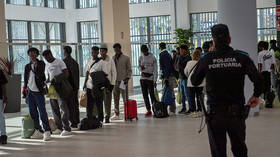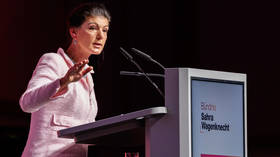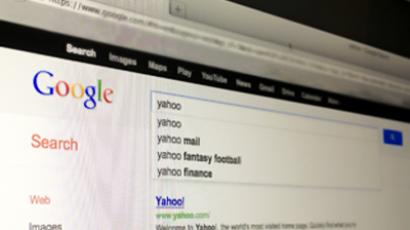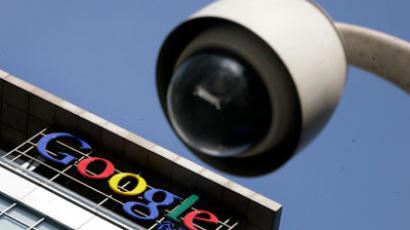The Future by Google’s Eric Schmidt: Cyber wars, terrorism and ethnic cleansing

Cyber-terrorists targeted by government drone strikes, online identities, which are taken hostage and held for ransom, and parents, who explain online privacy to their children long before the subject of sex. That’s how Google’s boss sees the future.
"For citizens, coming online comes to mean living with multiple identities; your online identity becomes your real identity. The absence of a delete button on the internet will be a big challenge. Not just what you say and write, but also the websites you visit, and do or say or share online. For anyone in the public eye, they will have to account for their past," Guardian newspaper has quoted Schmidt as saying at Cambridge University.He mentioned his recent trip to North Korea, and compared the population of the country to the 5 billion people worldwide, who are yet not connected to the net and live in an "utter information blackout". Connectivity would bring them enormous benefits and transform their lives, but it would also be exploited by sinister forces as online identities became a bigger element of our real-world identities, he said. The Executive Chairman of Google predicted virtual kidnappings, ransoming one’s ID for real money, underlining the importance of online IDs.He said, that some hackers already take over a user's computer and encrypt its hard drive, locking them out. Want everything back to normal – make a payment to the hackers. By hacking more and more e-mail accounts, cyber-criminals expose the online life of others.Schmidt believes the problems could go further as other technologies become cheaper. "Terrorists and criminals could use drones to carry IEDs [improved explosive devices] – that could result in conflict between civil and military drones," he suggested, though adding, that “the future will be much more disruptive to terrorists than everyone else”.Online communication between terrorists could make it hard for them to hide."If they connect, they leave some sort of digital footprint. And that makes them detectable," Schmidt pointed out, giving as an example the case of one target, who had said on a phone call that he was going to a family wedding, naming the place – and getting caught as a result.
Online privacy earlier than sex ed
Speaking about online IDs, Schmidt underlined the growing importance of online privacy. Parents would have to speak to their children about the perils of digital life much earlier than any conversation about the birds and the bees."It might be when they're eight years old, you'll be saying 'don't put that onlline! It'll come back to bite you!' and then have to explain why," he said.Schmidt admitted, that one of his biggest worries was not about children using digital devices for entertainment."Do they have an off button? They all do," he said.There will be more laws protecting anonymity. Europe is the current leader in managing its regulation, according to Schmidt, who also believes, that dependence on safe online IDs will be huge. He also believes there will be a thriving black-market for those IDs. He even suggested that repressive regimes might seek to carry out "online ethnic cleansing" – "where people from a certain group the government doesn't like have their online payments slowed or even stopped, where their tweets are deleted, they can't connect."
Still making world better
Schmidt also shared his views on the good side of being online in future, saying that the rise of the connected world, especially through mobile phones with data services, would reduce corruption and undermine repressive regimes. The arrival of the internet was always beneficial, he said. "There's no country where the situation has worsened with the arrival of the internet. Citizens can use their mobile phones to raise the cost of corruption. And even in China, the regime can be shamed – when there was a train crash recently the government tried to hush it up, but people began posting pictures on [the Twitter-like chat service] Weibo, and the story got out,” Schmidt pointed out.Concluding his speech, Schmidt expressed a concern that the digital age was intellectually superficial, and that something has been lost with the demise of books. "I worry a lot that nobody's doing that, that nobody's getting what comes from the deep reading of a book," Schmidt said.













